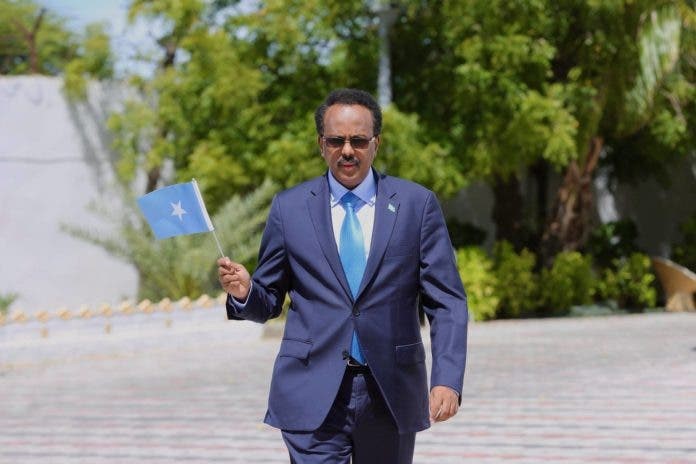April 18 2021
Mogadishu is back in the news this week for the potentially transformative move by President Mohamed Abdullahi Mohamed, popularly known as Farmaajo, to break a draining political deadlock. On April 12, the Lower House of Somalia’s bicameral parliament, passed a resolution extending its own and Farmaajo’s tenure by another two years, catching the international community flat-footed.
The bold move was an attempt to reset the chips following three years of largely inconclusive talks about the country’s democratic future and the electoral process to deliver that goal. In the context of Somalia’s fragile state, Farmaajo’s action represents a high risk but potentially rewarding strategy.
Somalia is caught in a power vacuum, camouflaged by a supposed dialogue between partners pursuing divergent goals. While three of the five federal member states, are seemingly bent of breaking the legacy of war and violence that has held the country hostage for the past thirty years, their counterparts in Puntland and Jubbaland, are holding out. It must be frustrating for the three states that have thrown their lot with Farmaajo.
Somalia has not had an elected government since 1969 when Maj-Gen Siad Barre seized power in a military coup. His unceremonious departure in 1991 saw the country fragment into a chaotic federation of largely hostile clan. The vested interests of clan leaders have become such a stumbling block that is near impossible to arrive at any sensible compromise.
The EU and the United States have reacted to this week’s events in predictable fashion, raising the threat of sanctions. Ironically, sanctions might actually reward the intransigents, in Puntland and Jubbaland, who along with their backers in the Middle East are the real obstacle to a democratic transition in Somalia.
Since 2018 when the federal member states agreed to transition to a one man-one vote electoral system, there has been no progress because Jubbaland and Puntland have since backtracked, in favour of indirect elections where the clan leaders hold sway. It was partly because of this impasse that polls due last year, were postponed to February 2021. That deadline was also missed because even after Farmaajo’s capitulation to indirect elections, his competitors in Puntland and Jubbaland now insist he should not compete in a future election.
The apparent divide over the latest developments, between African players in Somali and Western powers, is instructive. As the US and EU threaten “consequences,” Africa has not joined their chorus of condemnation.
After decades of bankrolling different interventions in Somalia over the decades, Western donor fatigue is understandable.
Somalia no doubt needs a new beginning but it is the Somali’s who have already demonstrated a desire for peace by siding with the government in Mogadishu that deserve support. Any dialogue that does not compel the holdouts to respect the position of mainstream Somali society, or compel hostile external actors to keep off, is unlikely bring any durable peace.
Holding elections in Somalia now would be great if it were viable. It would tick off some fancy boxes for Western audiences. But it will leave Somalia and the international community, exactly where they started.
A rethink based on reality, not ideals, is urgently needed.
This article has been adapted from its original source

